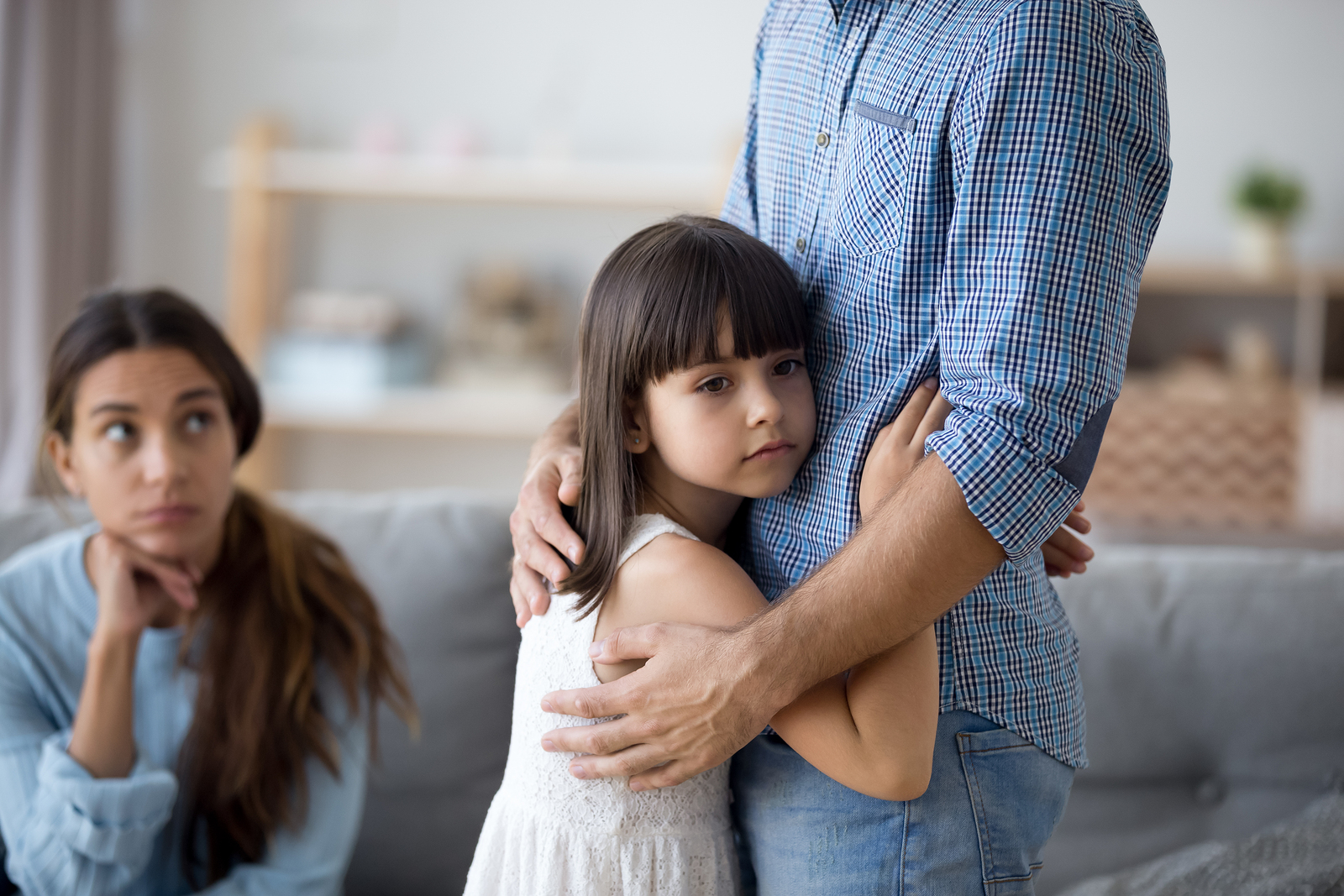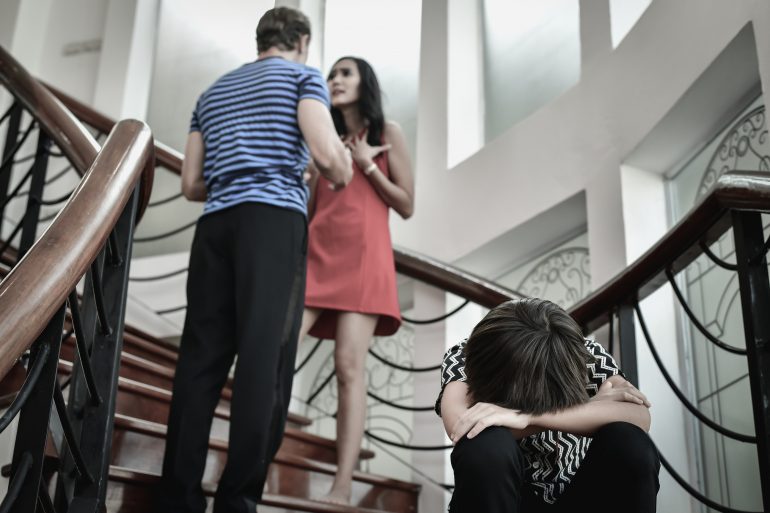From love to loss: Sarah Blinco talks to two Gold Coasters who expose the unbearable truth behind parental alienation
“I am a mother who has raised two amazing children, both who until recently, shared a large part of my life. It pains me to be honest, to admit that I have had to step back and give my children space and to accept that at the moment I have no other choice. I have given up on the dream of having them live with me again and I feel an emptiness that I could never put into words. Now I understand I am a mother who has faced first-hand the demoralising and totally crushing impact of parental alienation.”
Manipulation, lies, children being ‘poisoned against a parent’: it feels like the stuff of a Netflix psychological drama. What if it turns out that these situations are rife in our own backyard?
Deborah* is a Gold Coaster – her story opens above – and she believes that her experiences are far from uncommon.
“I didn’t realise what had been happening to the children and I had a name, that parental alienation was an actual issue for mums and dads everywhere.
“The children’s father started targeting me as the ‘bad parent’ more than 10 years ago. The plan was clearly to replace me with another mother (a ‘step’ mother) and now I have painfully discovered just how successful he has been at making me look like a downright uncaring and selfish parent”.
Alienation, by definition, means to isolate one thing from another. It’s unsurprising that this conduct is considered a form of psychological abuse.
“There have been a lot of painful moments but my lowest point was definitely when my children told me they did not want to live with me and that I had been a terrible mum. Their father would tell me that he of course always encouraged the children to spend time with me, but they simply didn’t want to see or live with me anymore.”

Parental alienation happens when one parent (the alienating parent) has taken planned or malicious steps to isolate a child from an alienated parent without legitimate justification. Most frequently this involves a child being brainwashed to turn against and reject their other parent, as in Deborah’s case. As a result, long term estrangement of a child from a parent and other family members can occur, even when a relationship was once very positive.
“My ex-husband is a narcissist. Causing me pain seems to the main goal,” Deborah said. “He is a vengeful and obsessive alienator who did not stop until he had convinced the children to live with him. He knew that was the one thing he could control that would cause me immense pain.”
In many cases, parental alienation is calculated. But it can also happen as a result of extreme emotional reactions from one parent in response to a separation – a response that prevents recovery and moving on. When this happens, children are exposed to that parent’s continuing bitterness and depression.
Lina* said of her childhood, that her parents underwent a long and complicated separation, one in which she and her sister were intrinsically involved.
“For a long time from our early teens, our mum would disclose adult information about our dad and the grief he’d caused her. She externalised unwanted emotions and responsibilities onto us. Mum said we should be the ones to tell him to treat her better – that her own mother had asked her to tell her father to leave, and she did it. She still holds resentment to this day that we didn’t follow her lead. We had many strained years with our father as a result.
“The worst of it went on for more than a decade and my sister and I went round and round in circles having very distressing conversations with our parents, trying to ‘sort things out’. It’s not appropriate, now I reflect, but mum’s grieving response wasn’t normal. There’s no doubt we’ve suffered serious anxiety and depression because of this ongoing mental trauma.”
An academic study published in 2018 by Jennifer Harman, Edward Kruk and Denise Hines calls parental alienation, ‘an unacknowledged form of family violence’. They wrote: “Despite affecting millions of families around the world, parental alienation has been largely unacknowledged by legal and health professionals as a form of family violence.”
Their study concluded that a formal review is sorely needed to help facilitate change and to protect the welfare of all involved, particularly children.
The impact of parental alienation on children can last a lifetime, and manifests in depression, a fragile sense of self, social isolation, and difficulty maintaining normal relationships. These are fears that Deborah holds for her own kids.
“Emotionally, for both the children and I, the last few years have been terrible. I am an adult and through the pain have found ways to survive. However, children should never have to choose one parent over another and be forced to live with the guilt of that decision.”
Through her own nightmare, Deborah credits support from online groups as helping her come to terms with her situation. One such network is the Eeny Meeny Miney Mo Foundation, the only organisation in Australia that specialises in parental alienation. Its website, emmm.org.au explains the impact on kids:
“Alienated children experience a complex grief for the loss of a parent who is still alive. Because this loss is the result of emotional manipulation, alienated children experience psychological difficulties associated with this type of trauma and abuse.”
Amanda Sillars is the CEO and founding director of the Eeny Meeny Miney Mo Foundation. Her vision is that all children are free from child abuse and family violence, including being manipulated by one parent to unjustifiably reject the other parent.
Her experiences with parental alienation are harrowing. Amanda was a child of abduction and parental alienation, and in 1993 she and her brother lost their mother to suicide as a result of events ongoing since 1984. Then in 2011 Amanda’s own children were parentally abducted and manipulated to be hateful and fearful towards her. She finally reunited with her son in 2015 and her daughter in 2017.
It wasn’t until 2012 that Amanda discovered there was a name for everything she’d experienced. From then on, she turned her traumatic experiences into a force for change, facilitating various online communities for other Australians going through similar unspoken horrors associated with parental alienation.
Her Eeny Meeny Miney Mo Foundation was officially founded in 2015. The organisation strives to develop prevention strategies to reduce the prevalence of parental alienation and to provide valuable resources for alienated parents, children and service providers.
Deborah’s final words: “We have a long way to go in Australia, but if we can draw attention to this issue and educate on the impact of parental alienation on parents and the damage it does to our kids, then that can only be a good thing for families in the future. “For me, letting go was my only way forward. Acknowledging to myself I had not done anything wrong and am a good mum, while focusing on me was key to finding a peaceful place to work on my healing. Grieving the loss of a child who is still alive is the most challenging thing I will ever encounter. I am stronger now and remind my kids of my love whenever I can, without overwhelming them, I always drip love! I remind them I will always be here, but it still hurts”.
*names have been changed to protect the identity of our interviewees and their families.





